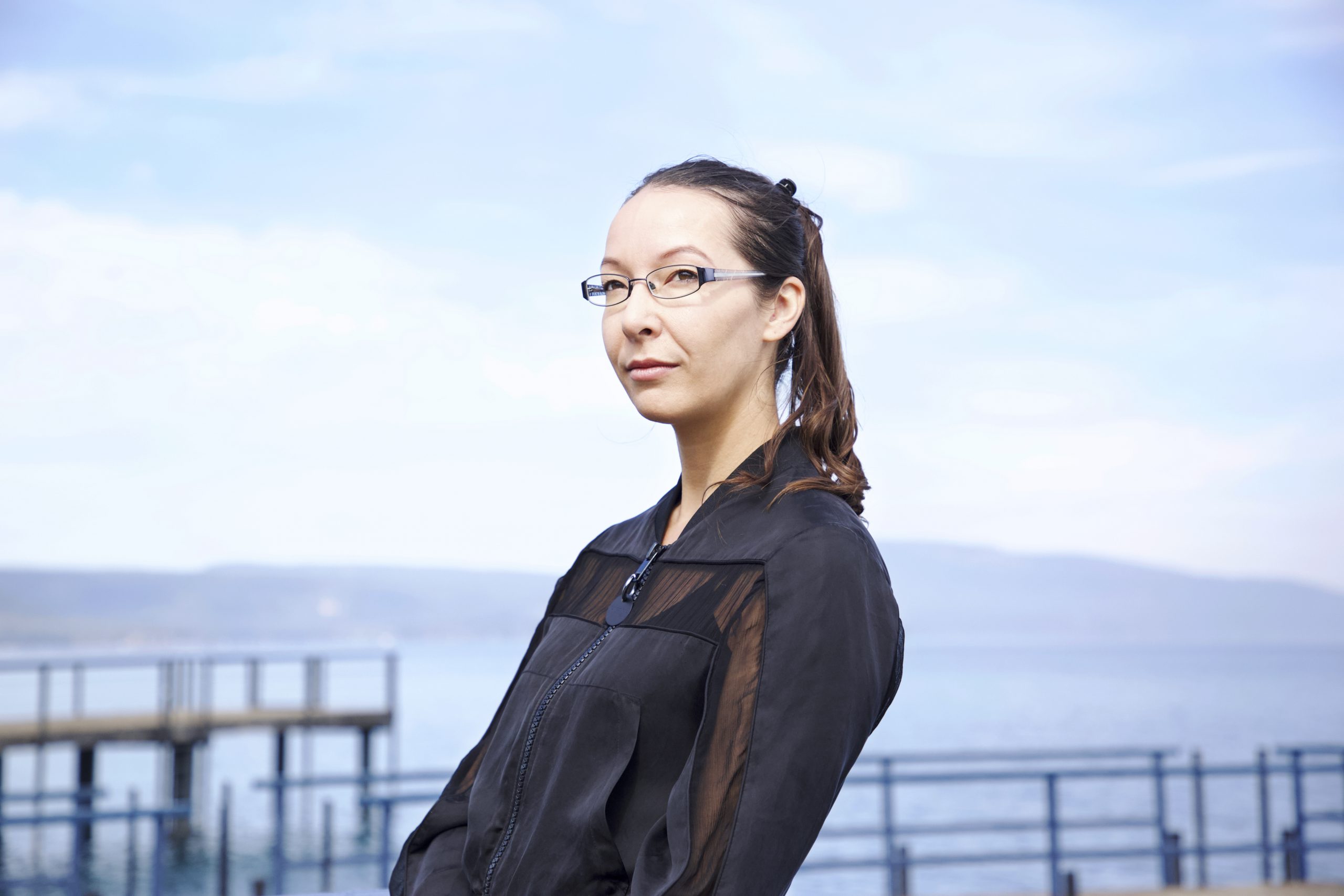Some Thoughts with ... Essa Hansen
29 Mar 2023The Author/s

Essa Hansen
Essa Hansen grew up in beautifully wild areas of California, from the coastal foothills to the Sierra Nevada mountains around Yosemite, before migrating north to the Canadian Rocky Mountains. She has ranched bison and sheep, trained horses, practiced Japanese swordsmanship, and is a licensed falconer. She lives with her cat in the San Francisco Bay Area.
As a sound designer for SF and fantasy films, her credits can be found on IMDB.
The Interview
1.- Could you tell us about how was pitching and getting agented with a novel such Nophek Gloss, which in many aspects is unique?
This book does straddle categories: it’s science fiction but the worldbuilding is fantastical; it’s adult but it begins with a child protagonist; it’s a revenge plot but there are many layers that take it away from that. My biggest concern when querying literary agents was the length—140,000 words—at the high limit then and within the range that agents who would reject it based on number alone. Despite that, I was only querying for a month with this particular book before I had my first offer, and the agent completely understood what I was trying to do, and didn’t see the novel’s—or my—uniqueness as an obstacle that couldn’t be overcome or leveraged.
2.- Now, we are here, four years later since you started The Graven trilogy, and months before the publishing of the last book. How do you feel about it?
The process was breakneck and full of challenges, so the fact that it’s finished now hasn’t sunk in yet. I imagine it might not sink in until I have the final finished copy in my hand and can see all three books together, externalized from my mind.
3.- An impression that I have is that the universe of The Graven is really extense. How do you keep track of everything you created for it?
I use Scrivener for my projects, which gives me space for folders of documents on worldbuilding and characters. Besides the glossaries that I wrote specifically for the books, I don’t spend a ton of time—nor do I have that time luxury!—to thoroughly write out all the aspects of the world. What I have is more like quick reference facts, a backstory, and a good-sized pile of unused ideas. A third or more of the worldbuilding for The Graven still exists only in my head.
4.- Following the previous question, is there any detail that didn’t make the cut to enter the trilogy but that you would like to share with us?
Mostly spoilers! There are many peripheral cool things like more species, food, and tech that didn’t make the cut because it was too much world and not enough plot (maybe they will end up in future books). There’s also ironically a good deal of rigorous scientific explanation that had to get cut out—for which I get complaints sometimes.
5.- Something that I can appreciate is that your prose tends to take a big focus on the senses. Was it intended or just as how it appeared?
The sensory nature of my prose was intentional to the story but also somewhat involuntary. I’m autistic, hypersensitive, and have hyperphantasia and a few types of synesthesia, so my everyday life deeply involves all the senses. I can’t help but translate that perspective to the page. On top of that, my day job in sound design for feature films requires sensitivity to sound, texture, temperature, space, weight, and other sensory elements, so they preoccupy my mind most of the time.
6.- Outside of writing and sound design, which other hobbies do you like to practice?
Reading, video games, cooking, playing piano, creating of any kind. I’m up for most outdoor activities and love hiking, camping, swimming, as well as many of the fantasy genre hobbies: archery, swordsmanship, falconry, and equestrian.
7.- You created so many different non-human creatures for this book. Was it easy to not fall into clichés and make them something original?
I love trying to invent unique creatures, and it comes easy to me, but there’s an extent to which I did need to use more familiar humanoid designs to assist the reader. You see this in much science fiction media and the critique that aliens are always just a slightly different version of a human. (It also brings up the question of whether one planet in the universe evolved humans and they spread, or if the human shape is somehow ideal and developed all over?) When creating a huge world and introducing new concepts, the challenge is to provide enough of a grounding for the reader to be able to absorb those new concepts and not feel lost. My trilogy has a lot of strange concepts overall, so I tried to build in enough familiar stuff to allow me to really lean into a handful of fun original ideas.
8.- What can we expect from Essa Hansen in the future?
I have a brand new science fiction (science fantasy?) novel almost ready to go on submission, and some exciting developments for the trilogy that might take root…if you’re a fan, cross your fingers for us!
